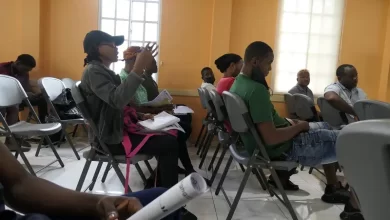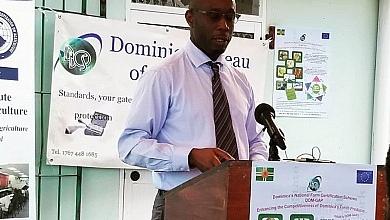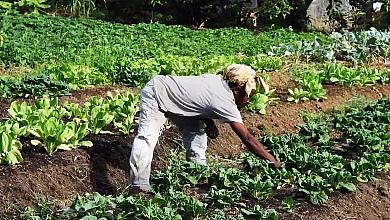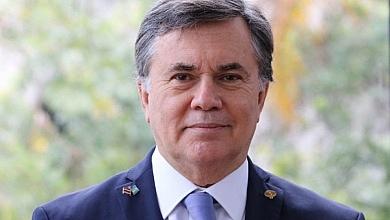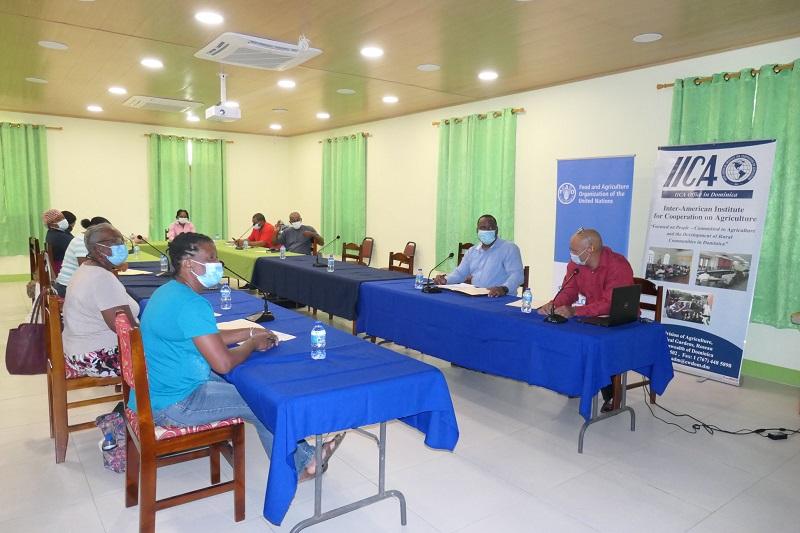
Microfinance Consultant Monica Rogers-Fletcher, based in Trinidad and Tobago engaged a Team of Consultants from Dominica and Guyana to develop a Gender Based Micro Financing Mechanism as a key product for the UNDP/IICA project, Strengthening Disaster Management Capacity of Women in the Commonwealth of Dominica. This project is expected to attract new levels of interest from rural women in the agriculture sector to engage and invest in productive activities and alternative livelihoods.
Microfinance Consultant Monica Rogers-Fletcher, based in Trinidad and Tobago engaged a Team of Consultants from Dominica and Guyana to develop a Gender Based Micro Financing Mechanism as a key product for the UNDP/IICA project, Strengthening Disaster Management Capacity of Women in the Commonwealth of Dominica.
This project is expected to attract new levels of interest from rural women in the agriculture sector to engage and invest in productive activities and alternative livelihoods.
On 24 February 2021 a virtual National Stakeholders Consultation was held to allow the Consultant and her Team to present their findings under that activity.
The structure and features of the micro finance mechanism were informed by a robust Situational Analysis undertaken by the team of National Consultants assisted by the financial and non-financial institutions, the farmers of the targeted Parishes of St Patrick, St Paul and St David and the Extension Services of the Ministry of Agriculture.
The Team analyzed the information obtained from the interviews and discussions held with the farmers and other stakeholders to develop a strategic approach to the Mechanism. The overall goal is the Reduction of the Vulnerable Communities and Groups, in particular women, to the socio-economic impact of natural disaster linked to climate variability and climate changes supported by three key strategic objectives: a)To improve access at the national and community levels, to relevant knowledge and information on Disaster Risk reduction, Adaptation and Mitigation Measures; b) To enhance capacity and opportunities for socio-economic development and income generation for vulnerable communities, women and producer groups; and c) To develop appropriate and relevant gender related Institutional Policy Framework, Procedures and Implementation Systems
The Micro Finance Mechanism therefore rests on the foundation of these strong pillars, and provides a holistic stakeholder supported approach to financing. These include a number of incentives such as Personal Development including coaching and mentoring, Technical, Finance and Business Development, cash-based Savings Incentives and Fallback mechanisms in the event of climate based natural disasters, Peer and Group support and the institution of gender policies and procedures within the financing and collaborating institutions.
Key and innovative features of the Mechanism will support loans to women, including the Kalinago and women’s groups. These include its attractive interest rate, the unique blend of loan and grant funds to support investment in agricultural projects as well as the creation of an interest yielding investment fund to be used as collateral and toa fallback position in the event of disaster. The innovative parametric insurance which will be included as a feature of the mechanism will effectively address the risks associated with the impact of hurricanes, and further enhance the fallback position of the women in the event of disaster.
The strategy also proposes an implementation process which incorporates stakeholder consultations for validation of the micro finance mechanism, further discussions with the financing and collaborating institutions to evaluate and support their readiness for the strategy and the need for capacity building. These will enable the completion of an implementation plan for a pilot of the mechanism.
This article is copyright © 2021 DOM767





